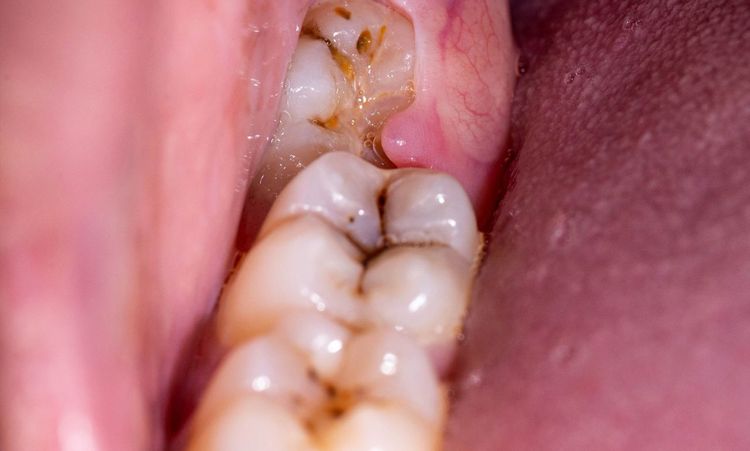Apple cider vinegar has become a household staple that does almost everything. From kitchen counters to skincare, this tangy liquid has captured attention for its versatility and potential health benefits. But what exactly makes this simple vinegar so magical? Let's dive into the world of apple cider vinegar and separate fact from fiction.
It Kills Pesky Weeds
When sprayed directly onto weeds, especially on sunny days, apple cider vinegar can dry out and kill unwanted plants. Mix equal vinegar and water in a spray bottle and apply directly to weeds, carefully avoiding your garden plants. The high acidity level works best on young weeds and may require multiple applications for stubborn varieties.
This natural weed killer is particularly effective for weeds growing in sidewalk cracks or patio stones. Unlike chemical herbicides, it won't leave harmful residues in the soil or pose risks to pets and wildlife.
It Helps Clear Up Skin

Apple cider vinegar has gained popularity in natural skincare routines thanks to its antibacterial and antifungal properties. Its natural acids help balance the skin's pH levels and remove excess oil.
Diluted apple cider vinegar can serve as a toner for acne-prone skin. Mix one part vinegar with three or four parts water, depending on your skin sensitivity. Apply with a cotton ball after cleansing and before moisturizing. The antimicrobial properties can help reduce breakouts, and the acidity can help exfoliate dead skin cells.
Others with skin issues like eczema or dry, itchy skin indicate that they get relief by taking diluted apple cider vinegar baths. Adding a cup of vinegar to a warm bath can soothe irritation and restore the skin to its natural acidity.
That being said, remember that vinegar is acidic and can irritate if not diluted. Do a patch test on a small skin area first, and discontinue use if you experience any side effects.
It Freshens Funky Foot Odors
Its antimicrobial properties help eliminate the bacteria that cause unpleasant smells.
Creating a foot soak with one part apple cider vinegar and two parts warm water can work wonders. Soaking your feet for 15-20 minutes helps neutralize odors and can help with fungal issues like athlete's foot. The acidity creates an environment where odor-causing bacteria and fungi struggle to survive.
For a quick refresh, you can wipe down your feet with a cloth dampened with diluted apple cider vinegar or spray the inside of your shoes with a mixture of equal vinegar and water.
It's a Great Alternative to Harsh Cleaners
Commercial cleaning products often contain chemicals that can be harsh on surfaces and potentially harm health. Apple cider vinegar provides a natural alternative that's effective for many household cleaning tasks.
Vinegar's acetic acid cuts through grease removes mineral deposits and kills certain bacteria and mold. Mixed with equal parts water, it makes an excellent all-purpose cleaner for countertops, sinks, and bathroom fixtures. Undiluted vinegar can be applied directly to stubborn mineral deposits.
Apple cider vinegar can also be used to clean windows, remove refrigerator odors, and even as a fabric softener in laundry. Its natural deodorizing properties make it particularly useful for eliminating household odors.
It May Curb Blood Sugar Spikes
Several studies suggest that consuming vinegar before meals can improve insulin sensitivity and reduce blood sugar spikes after eating, particularly after high-carbohydrate meals.
Acetic acid in vinegar prevents starch-digesting enzymes to permit less digestion of complex carbohydrates. Less sugar is absorbed into the bloodstream, so more even glucose levels. There is some evidence that two tablespoons of apple cider vinegar taken before bedtime can lower fasting blood sugar levels as much as 4% by morning.
Incorporating apple cider vinegar into meals might help people with type 2 diabetes or insulin resistance manage blood sugar levels. However, it's crucial to note that vinegar should complement medical treatment, not replace it. Always consult a healthcare provider before using apple cider vinegar as part of a diabetes management plan.
It Could Improve Satiation
Apple cider vinegar may help in this area by promoting feelings of fullness. Studies suggest that vinegar consumption with meals increases satiety—the feeling of fullness—leading to fewer calories consumed throughout the day. The mechanism appears to be related to vinegar's ability to slow stomach emptying, keeping food in the stomach longer and extending the sensation of fullness.
Additionally, acetic acid has been shown to suppress centers in the brain that control appetite. By taking one to two tablespoons of apple cider vinegar diluted in water before meals, you might naturally eat less without feeling deprived.
Boosting Weight Loss

While it's not a miracle solution for weight loss, research suggests it may offer modest benefits as part of a comprehensive approach.
A 12-week study found that participants who consumed one or two tablespoons of apple cider vinegar daily experienced more weight loss than those who didn't take vinegar. Acetic acid appears to suppress fat accumulation and increase metabolism. Those consuming two tablespoons daily lost about 3.7 pounds over the study period.
Apple cider vinegar may also help reduce visceral fat, the dangerous fat surrounding internal organs linked to higher risks of chronic diseases. Improving insulin sensitivity and reducing blood sugar levels may help prevent the metabolic syndrome often associated with excess weight.
For weight management benefits, consistency is key. Diluting one to two tablespoons in a large glass of water and consuming it before meals, particularly breakfast, is most effective.
What Happens If You Take Apple Cider Vinegar Daily?
Incorporating apple cider vinegar into your daily routine might lead to several potential health improvements, but there are also some considerations to remember.
Regular consumption may help maintain stable blood sugar levels, support digestive health through beneficial bacteria, and gradually assist with weight management goals. Some report improved skin clarity, reduced bloating, and more consistent energy levels.
However, daily use also comes with precautions. The high acidity can erode tooth enamel if not properly diluted or consumed without rinsing the mouth afterward. Some people experience throat irritation or digestive discomfort, particularly when taking higher doses of undiluted vinegar.
The safest approach is to dilute one to two tablespoons in at least 8 ounces of water and consume it through a straw to minimize contact with teeth. Taking it before meals rather than on an empty stomach may also reduce the risk of irritation.
What Does Apple Cider Vinegar Do to the Body?
Apple cider vinegar interacts with the body through its main component, acetic acid, and other compounds found in "the mother."
At the digestive level, it may stimulate the production of stomach acid, potentially aiding those with low stomach acid levels. This could improve the breakdown of food and absorption of nutrients. The acidic environment created by vinegar may also support the growth of beneficial gut bacteria while inhibiting harmful microbes.
In the bloodstream, apple cider vinegar improves insulin sensitivity, helping cells respond more effectively to insulin and take up glucose from the blood more efficiently. This mechanism explains its potential benefits for blood sugar control.
Some research suggests that apple cider vinegar may impact fat metabolism by activating certain enzymes that increase fat burning. It may also reduce fat storage in the liver and improve overall liver function.
Additionally, apple cider vinegar's potassium and other minerals may support electrolyte balance, benefiting heart health and blood pressure regulation.
Does Apple Cider Vinegar Help You Lose Belly Fat?

Several animal studies have found that acetic acid can reduce abdominal fat storage. In human research, regular consumption of apple cider vinegar has been associated with reductions in body weight, BMI, visceral fat, waist circumference, and triglyceride levels—all factors related to belly fat.
The mechanism involves improved metabolism and reduced fat storage. Acetic acid may activate genes that decrease fat storage and increase proteins that break down fat. Improving insulin sensitivity may also prevent converting sugar to fat, especially around the abdomen.
Combining one to two tablespoons of diluted apple cider vinegar daily with a balanced diet, regular exercise, adequate sleep, and stress management will likely produce the best results for those looking to address belly fat. Consistency is crucial—benefits typically appear gradually rather than overnight.
Conclusion
Apple cider vinegar truly earns its reputation as a versatile, natural solution for many common problems. This humble pantry staple offers impressive versatility, from household cleaning to potential health benefits. While research continues to explore the full extent of its benefits, the evidence so far suggests that moderate, consistent use of apple cider vinegar may support blood sugar regulation, weight management, digestion, and skin health. Its natural antimicrobial properties make it an excellent ecological alternative for household and personal care applications.




